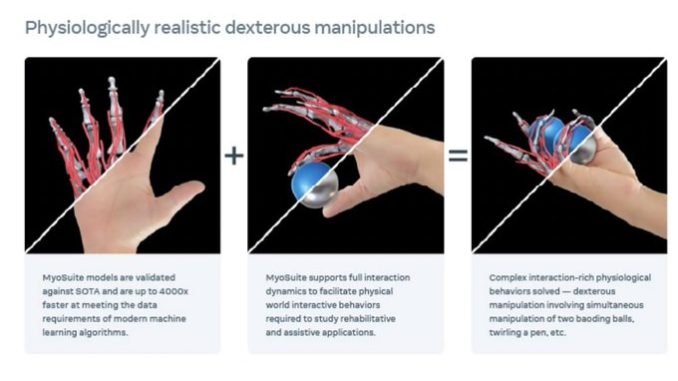
We have developed a new embodied AI platform, called MyoSuite, that applies machine learning (ML) to biomechanical control problems by unifying motor and neural intelligence.
– The musculoskeletal models in MyoSuite are up to 4,000x faster than other simulators at meeting the data requirements of modern ML algorithms
– This research could have significant impact in areas such as developing prosthetics and post-injury rehabilitation, since we can generate physiologically realistic movements, such as twirling a pen or manipulating Baoding balls, in full detail.
– As we build for the metaverse, these models will help developers build avatars that move more realistically, making the experience more expressive and immersive.
The more intelligent an organism is, the more complex the motor behavior it can exhibit. So an important question to consider, then, is — what enables such complex decision-making and the motor control to execute those decisions? To explore this question, we’ve developed MyoSuite: a set of musculoskeletal models and tasks that enable the application of ML to solve biomechanic control problems. MyoSuite unifies the two facets of intelligence: motor and neural. We are releasing MyoSuite and open-sourcing a set of comprehensive benchmarks for the ML community to enable continued research in this area.
